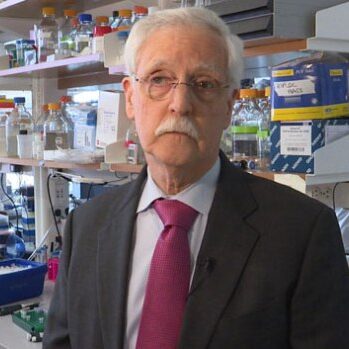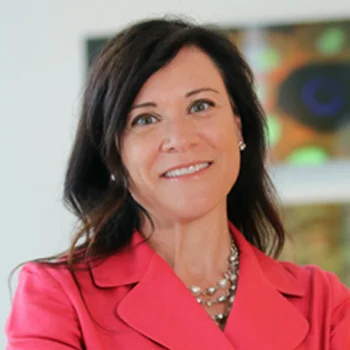Meet The Researchers

Robert H. Brown Jr., DPhil, MD
Director of Neurotherapeutics
UMass Chan Medical School
Robert H. Brown Jr., DPhil, MD, the Leo P. and Theresa M. LaChance Chair in Medical Research and director of the Program in Neurotherapeutics at UMass Chan Medical School, is an internationally known researcher and physician leading the quest to cure neurodegenerative and neuromuscular diseases like amyotrophic lateral sclerosis (ALS), also known as Lou Gehrig’s disease.
Renowned for his groundbreaking basic and clinical research on the inherited and genetic basis of neurodegenerative and neuromuscular diseases, Dr. Brown has a record of significant discoveries in identifying gene defects that elucidate how ALS causes neurons to die. In 1993, a team of researchers led by Dr. Brown discovered the first gene linked to the inherited form of ALS, called SOD1.

Dr. Daryl A. Bosco, PhD
Professor and Associate Vice Chair of Neurology Research
Umass Chan Medical School
Dr. Daryl A. Bosco is a Professor and Associate Vice Chair of Research in the Department of Neurology at UMass Chan Medical School, Worcester, Massachusetts. In 2024, Dr. Bosco was honored with an Endowed Chair and named the inaugural Paul J. DiMare Chair in Neurodegenerative Disease.
Dr. Bosco’s scientific career began with a Ph.D. in bio-organic chemistry from Brandeis University in Massachusetts and a post-doctoral fellowship at the Scripps Research Institute in California, where she studied protein structure and misfolding in the context of neurodegeneration. Dr. Bosco was then an Instructor at Harvard Medical School in Massachusetts, where she worked in the lab of Professor Robert H. Brown, Jr., MD, DPhil on sporadic amyotrophic lateral sclerosis (ALS).

Dr. John Landers
John Landers is an international leader in the field of ALS genetics research. He received his PhD in Molecular Biology from the University of Pennsylvania in 1995. Dr. Landers was then a post-doctoral fellow in Genetics at the Massachusetts Institute of Technology, before receiving an NIH training grant from the Massachusetts Institute of Technology in Genetics. He was a Chief Scientific Officer at PolyGenyx Inc. from 1999 to 2005. Dr. Landers taught neurology at Mass General Hospital and Harvard Medical School until 2008, when he began as an Associate Professor of Neurology at UMass Chan Medical School. His career has mainly focused on using new and high-throughput technologies for the identification of neurodegenerative disease genes with a strong focus on ALS and FTD. Through his efforts, the Landers Lab has developed extensive collaborations with the leaders of ALS and FTD genetic research. The Landers Lab was a major contributor to the identification of the FUS gene mutation as a significant percentage of familial ALS cases.

Desiree Baron, PhD
Research Scientist, Sr.
Landers Lab
ALS can be caused by mutations in several different genes, including NEK1. ALS related NEK1 mutations cause a deficiency in the NEK1 protein. We are currently investigating ways to increase expression of the NEK1 protein that can be used as a treatment for this disease.

Catherine L. Douthwright, PhD, CCRP
Assistant Professor
Neuromuscular Clinical Research
Catherine Douthwright, PhD, is an assistant professor in the lab of Dr. Robert Brown. Her focus is on research that directly involves patients. This includes collecting samples from people with ALS and volunteers to share with scientists in the lab who are performing fundamental ALS research. She also helps lead clinical trials to test new drugs and therapies for ALS. Catherine has been doing this work for 10 years, and she’s inspired every day by the dedication of both patients and researchers who are working together to find the causes of ALS and develop better treatments.

Debra Cameron
Research Associate III
Landers & Bosco Labs
Debra is working on multiple studies aimed at developing ALS therapeutics, as well as at understanding the molecular and genetic causes of ALS. Debra is currently assisting with projects focused on the effects of head trauma on neurodegenerative diseases such as ALS and FTD. She is also studying how mutations in PFN1 cause ALS.

Nils Henninger, M.D., Ph.D., Dr. med., FANA, FWSO
Associate Professor of
Neurology and Psychiatry
Dr. Henninger is a clinician and scientist at the University of Massachusetts Chan Medical School (UMass Chan). A particular research interest of his lab is to understand how traumatic brain injury (TBI) contributes to ALS pathology with the goal to develop novel treatments. With the support of the Angel fund for ALS research, his laboratory provided strong support for the hypothesis that TBI can trigger ALS pathology and accelerate the course and increase severity of the disease in murine ALS models. He also discovered that blocking the key regulatory gene of axon death (Sarm1) is neuroprotective (Kahriman et al. Brain 2023; Dogan et al. Ann. Neurol 2025). His lab’s ongoing efforts are aimed at understanding whether the deleterious effects of TBI on ALS disease onset and progression are due to injury-induced impairment of glymphatic function, the brain’s system to clear waste products, and whether it is possible to enhance glymphatic flow to prevent disease progression in ALS.

Dr.Katharina Elisabeth (Karin) Meijboom
Postdoctoral Researcher
UMass Chan Medical School
Dr. Meijboom is a postdoctoral researcher at UMass Medical School, where she is working on gene therapy approaches for ALS under the mentorship of Dr. Brown. Her projects involve correcting common SOD1 mutations using cutting-edge gene editing tools, suppressing the toxic hexanucleotide repeat in the C9orf72 gene with artificial microRNAs and gene editing, and restoring NEK1 gene function. While still early, some of their data in cell and mouse models have been very promising.

Jonathan Jung
Graduate Student
Bosco Lab
Jonathan is studying how cells in the brain and spinal cord, other than neurons,
contribute to ALS. A cell type he is studying is microglia, which regulates the immune
response in the central nervous system and has been shown to play a critical role in
other neurodegenerative diseases such as Alzheimer’s. Jonathan’s project involves the
use of human induced pluripotent stem cell models, which can be directed to become
various cell types including motor neurons and microglia, to better understand how ALS-
linked mutations in the gene profilin-1 specifically affect different parts of the brain and
spinal cord. His work suggests that ALS-PFN1 impairs important quality control
mechanisms in microglia, causing these cells to become dysfunctional. These findings
suggest that upregulating these quality control processes in microglia could be a
therapeutic target for ALS and related diseases.

